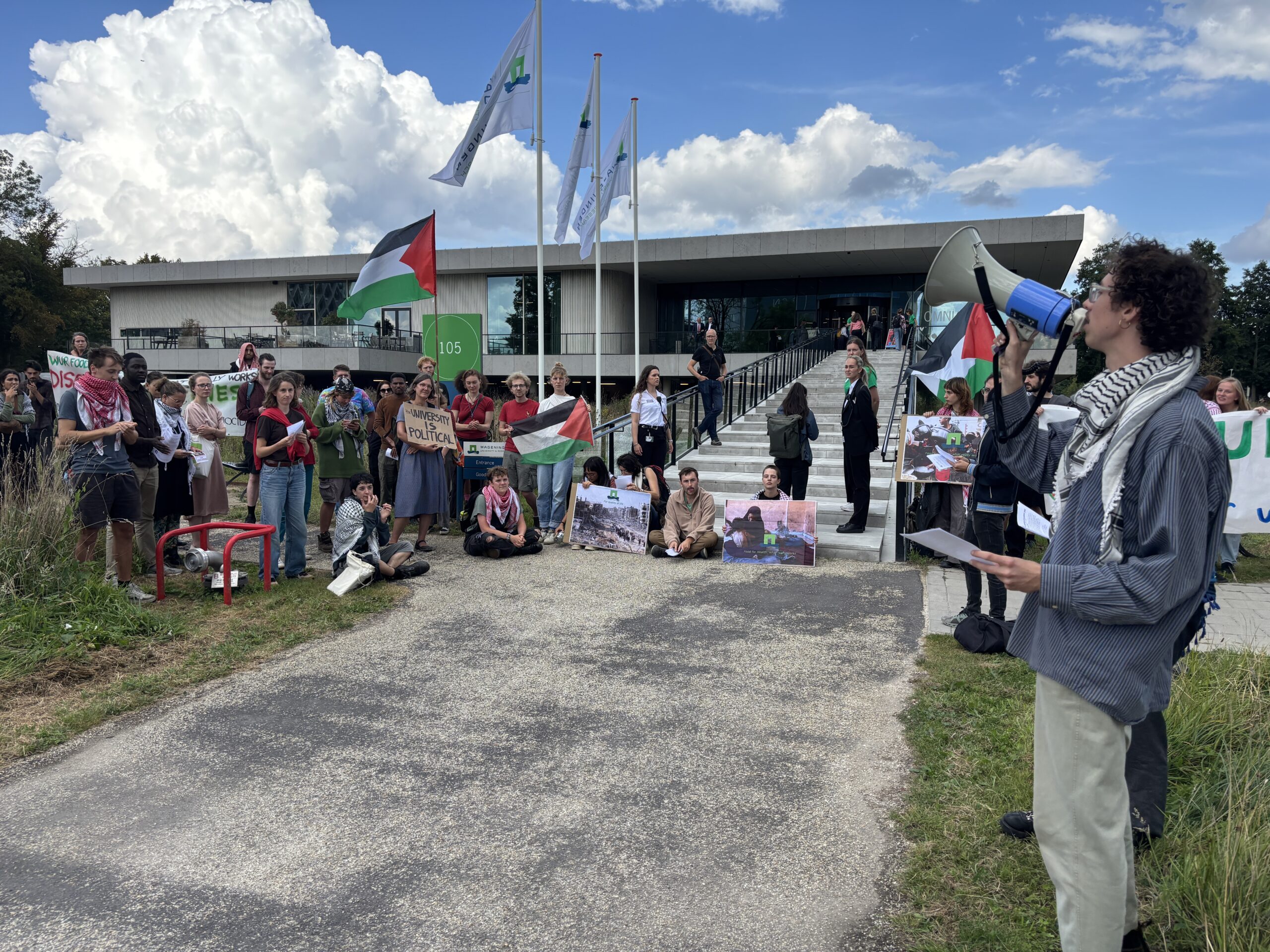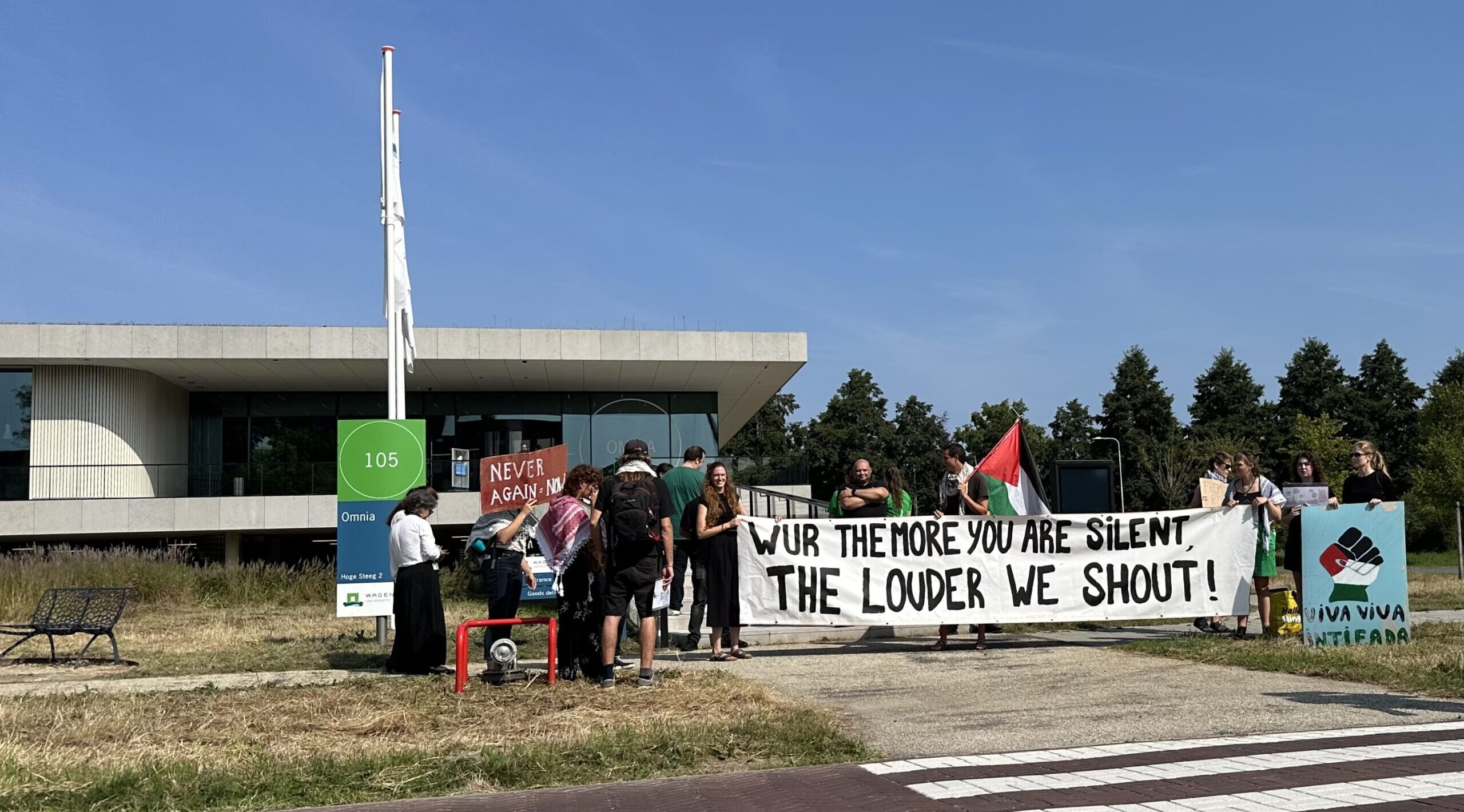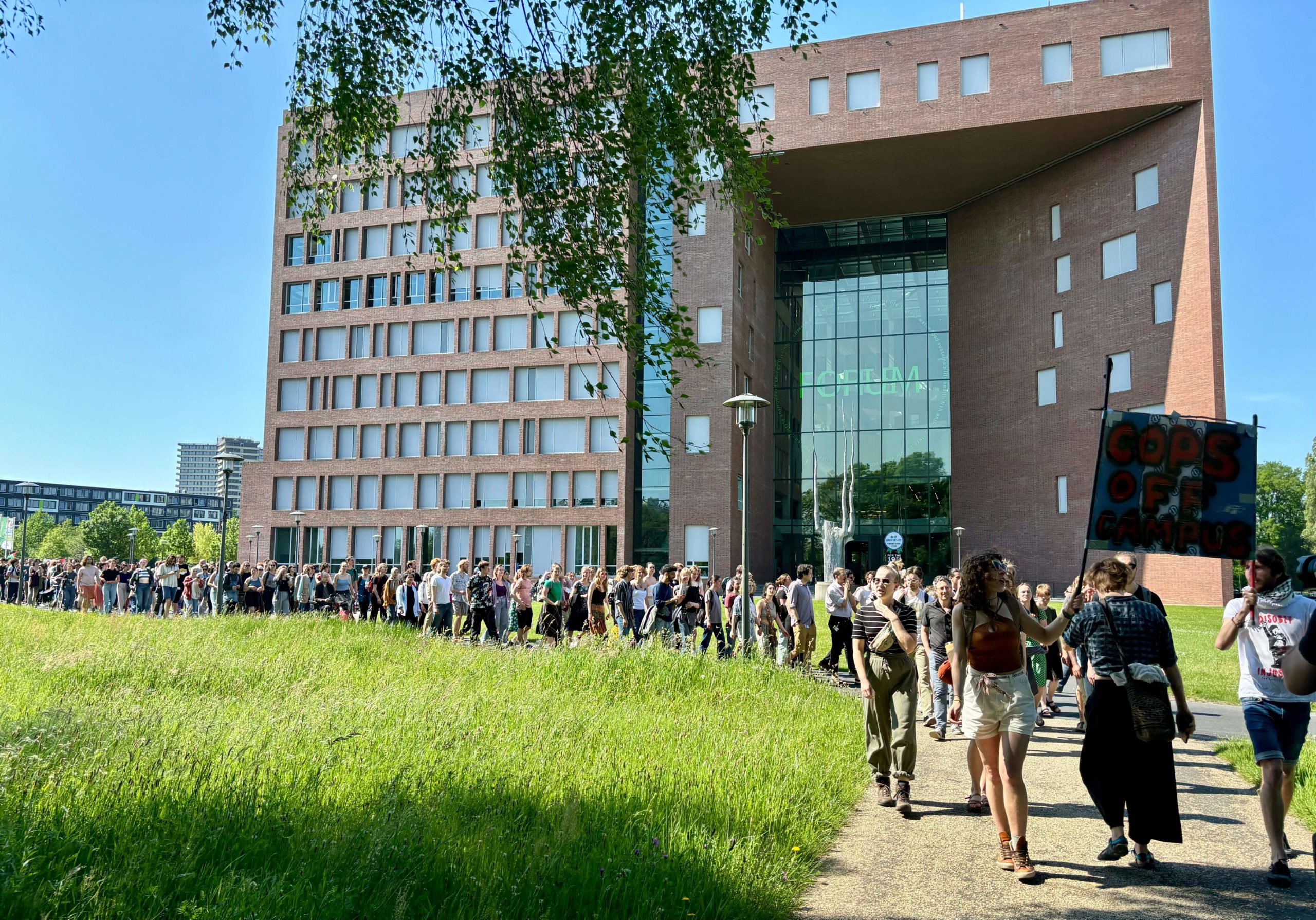In early April, Scientist Rebellion, the academic branch of Extinction Rebellion, held an action week. Scientists demonstrated all around the world to draw attention to issues such as climate change. Were you there? No, me neither.
It is a remarkable situation. Many of us study important problems such as climate change, biodiversity loss, social inequality, hunger, you name it. We start our papers or reports by stating that there is a crisis, that previous efforts have not been enough, and that things really have to change. Extinction Rebellion is currently the main organized global movement that is campaigning for this. Yet only a small group of people from Wageningen are active in Extinction Rebellion.
We stay-at-homes view their activism with pity at best. Often, we disapprove, asserting that disruptive demonstrations undermine support for sustainability policies or that expressing an opinion damages your scientific credibility. Meanwhile, nobody asks us to justify why we stay at home, and nobody asks us what our strategy is.
Nobody asks us to justify why we stay at home
Thank goodness for that. Because I don’t think we stay-at-homes have a convincing answer to that. We will say that we do not believe in radical activism or that we cannot afford to be arrested. We will say that our research is already making a significant contribution and that we are also involved in society in many other ways. There will be some truth in all of that. But it also covers up the fact that we stay in our comfort zone by staying at home. And it allows us to avoid awkward questions about our research: whether we are able to expose those deep, underlying problems and whether all those papers and reports are making such a difference.
So, in the aftermath of the action week at the beginning of April, here’s a call for some soul-searching by stay-at-homes like me: are we really doing all we can? Where does our role lie? Maybe it does not lie in the activism of Extinction Rebellion, but then let us take a serious look at where we can make a stand.
Vincent Oostvogels (26) is in the second year of his PhD research on biodiversity restoration in dairy farming. He dreams of keeping a few cows himself one day.




